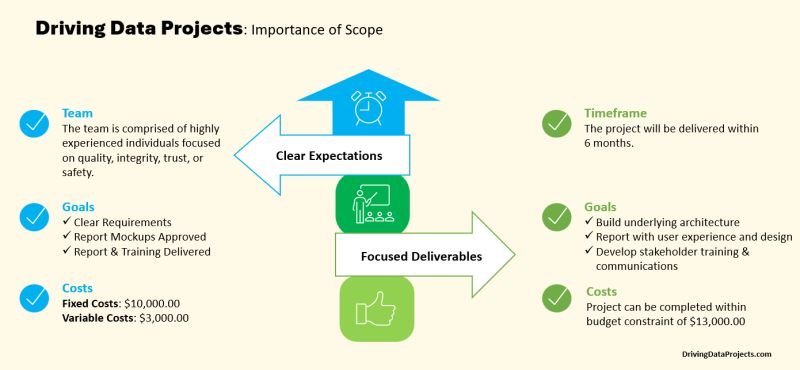
Countdown: Book Excerpt Chapter 3
Until an organization is willing to invest in its data capabilities, aligning data resources to answer complex business questions will be like riding a bicycle to chase a Formula One racer and never catching up. Scoping project opportunities well is about building enough trust to eventually scale resources. While a single project manager can accomplish some initiatives, most data projects require multi-disciplinary resources to execute.

Finding Meaning in Data Projects by Asking: WHY
Most data teams cover WHAT and HOW with standard reports and KPIs. They will optimize processes and analyze business domains that will impact the company's bottom line from a data perspective. But how many data teams truly understand the WHY behind the reports they generate? How many actively consult with the business as a true partner to understand the underlying business concerns behind the numbers? Without the WHY, delivering true value in the WHAT and HOW is ten times harder.

The Importance of Scope
In driving data projects, I find people underestimate the impact of scoping projects effectively. Too often, you see technology leads with new platforms or tools looking for a problem to solve, or business leads with a unique one-off request from an executive reporting forum carry over to a data team as a priority requirement, whether it is or not.